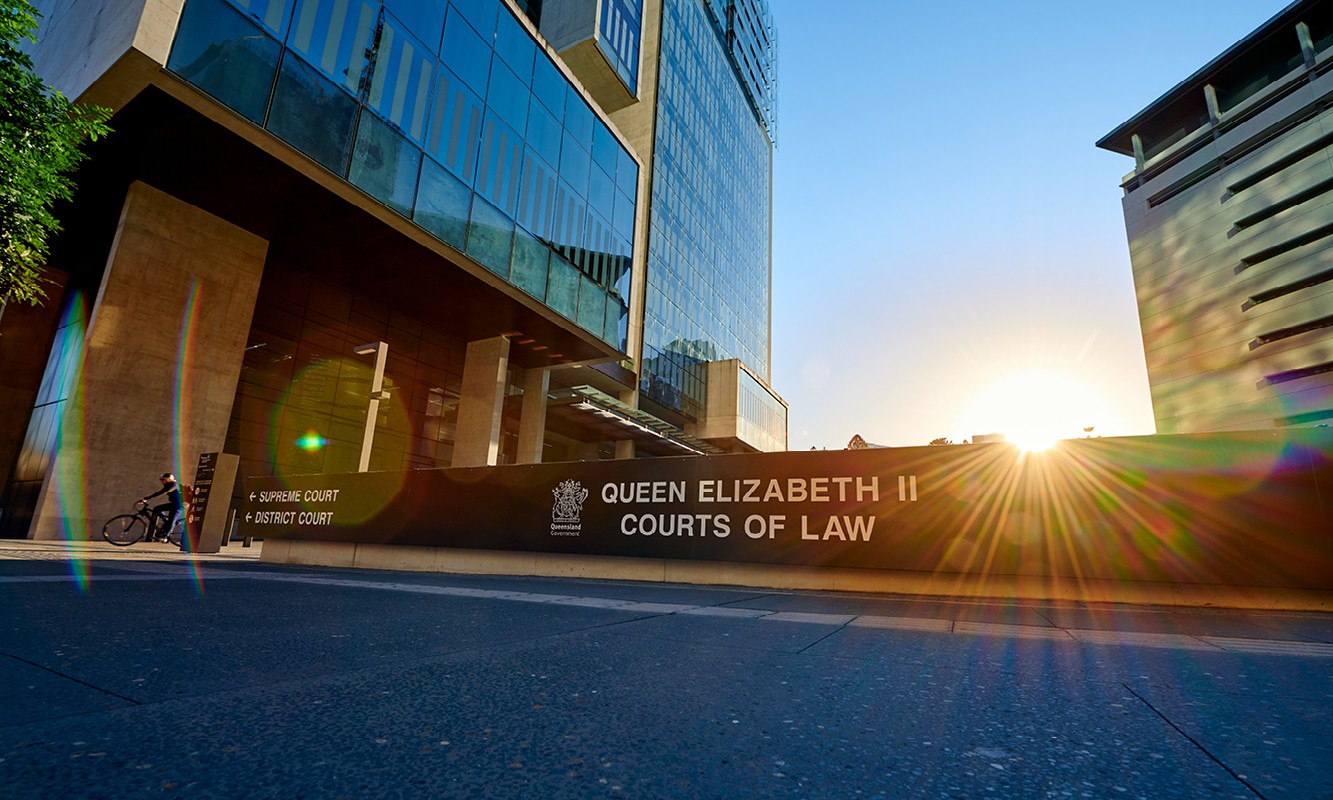With large numbers of people living in units, apartments, and other accommodation regulated by body corporate legislation, and with those numbers only expected to grow, the use of adjudicators and referees to determine disputes is increasingly important.
In particular, it is important to understand when the use of adjudication is required, and when other avenues of review, such as the courts, may be more appropriate.
This note considers the different statutory schemes which apply under the Body Corporate and Community Management Act 1997 (the BCCMA) and the Building Units and Group Titles Act 1980 (BUGTA) (together with the Mixed Use Development Act 1993 – the MUD Act).
Whereas the BCCMA mandates the referral of most disputes to an adjudicator and QCAT, BUGTA allows, but does not in terms require, referral of disputes to a referee.
However, even where the use of referees under BUGTA and the MUD Act is not mandatory, parties should carefully consider whether referral may in any event be the preferable course.
Body Corporate and Community Management Act 1997 (BCCMA)
Section 227 of the BCCMA provides a broad definition of “disputes” by reference to the parties to them – lot owners, bodies corporate, and others. A distinction is drawn between “complex disputes” (defined in Schedule 6) and other disputes.
Section 228 provides that the purpose of that chapter is to establish
“…arrangements for resolving, in the context of community titles schemes, disputes about:
(a) contraventions of this Act or community management statements; and
(b) the exercise of rights or powers, or the performance of duties, under this Act or community management statements; and
(c) the adjustment of lot entitlement schedules; and
(d) matters arising under the engagement of persons as body corporate managers, the engagement of certain persons as service contractors, and the authorisation of persons as letting agents”.
Chapter 6 applies to disputes of this nature that arise between the parties mentioned in s. 227.1
Section 229 of the BCCMA provides that, in general terms, the “only remedy” for a dispute (whether a complex dispute or another dispute) is as set out in that section.
For a complex dispute, the only remedy at first instance is: an order of a specialist adjudicator under Chapter 6 the BCCMA; or an order of QCAT exercising original jurisdiction under the QCAT Act. QCAT does this, for example, in relation to caretaker contractual disputes under s 149B of the BCCMA.
For a dispute which is not a complex dispute, s. 229(3) provides that the only remedy available at first instance is resolution by a “dispute resolution process”, which is defined in Schedule 6 as:
“(a) department conciliation; or
(b) dispute resolution centre mediation; or
(c) specialist mediation; or
(d) specialist conciliation; or
(e) department adjudication; or
(f) specialist adjudication”.
Parts 1 to 12 of Chapter 6 of the BCCMA set out in some detail the method in which specialist adjudications, applications to QCAT, and other dispute resolution processes defined in Schedule 6 are to be commenced and conducted.
That is, for almost all types of disputes which might usually arise involving lot owners and bodies corporate governed by the BCCMA, parties are required to use the dispute resolution methods set out in the BCCMA. There is no jurisdiction in the courts, otherwise than on appeal in limited circumstances, to hear or determine those kinds of disputes.
There is an exception for actions for recovery of debts such as levies owed by lot owners to a Body Corporate under s.229A of the BCCMA. These proceedings can be brought in a court of competent jurisdiction.
If a party attempts to litigate disputes under the BCCMA in the courts, they are likely to face an application for summary dismissal for want of jurisdiction.2
Building Units and Group Titles Act 1980 (BUGTA)
Part 5 of BUGTA provides for resolution of disputes by referees appointed pursuant to s. 69. Section 77(1) sets out the general powers of a referee to make orders, in the following terms (emphasis added):
“(1) A referee may, pursuant to an application of a body corporate, a body corporate manager, a proprietor, a person having an estate or interest in a lot or an occupier of a lot in respect of a parcel, make an order on any person entitled to make an application under this subsection or on the chairperson, secretary or treasurer of the body corporate for the settlement of a dispute, or the rectification of a complaint, with respect to the exercise or performance of, or the failure to exercise or perform, a power, authority, duty or function conferred or imposed by this Act in connection with that parcel”
Although the power of a referee is not unconfined,3 it is apparent that it is nonetheless very wide.
A party may appeal a referee’s decision to a “tribunal” (s. 106) which is constituted by a Magistrate (s. 96). The tribunal’s powers on appeal are broad. It may affirm, vary or revoke the referee’s order, and may substitute its own order (s. 107). In practice this will usually mean that the parties are entitled to a second review on the merits. The tribunal stands in the shoes of the referee and decides afresh what decision should be made.
The tribunal’s decision may be appealed, on a matter of law, to the Supreme Court (including the Court of Appeal4 (s. 108).
By s. 214A of the MUD Act, the provisions of BUGTA referred to above, relating to referees, also apply under the MUD Act in relation to any “dispute about the operation of [the MUD Act] or the rights and obligations of persons under” that Act, except for limited types of disputes mentioned in s 214A(2).
It should be noted that although BUGTA sets out a regime for the resolution of body corporate disputes by referees, and for appeals to the “tribunal” (and in some circumstances to the Supreme Court), there are some limited instances in which decision-making by a MUD Act body corporate can be challenged, namely where a body corporate sues for a levy debt in a court of competent jurisdiction and the lot owner contends that the statutory prerequisites were not satisfied. This was the finding in The Proprietors Cathedral Village BUP 106957 v Cathedral Place Community Body Corporate.5 However, lot owners should not proceed on the basis that any deficiency in the levy making process will entitle them to avoid payment of the levy. In Cathedral Place it was plain, as a matter of law, that certain amounts could not be recovered against the subsidiary body corporate. Thus there was a substantive defect in the levy-making process.
Other alleged deficiencies, for example in making decisions about who might be entitled to vote at a meeting, will not necessarily be amenable to judicial review.6
Practical reasons to seek decision by referee at first instance
Even though resolution of disputes is not mandatory under BUGTA (or the MUD Act), there are nevertheless good reasons why it would often (or indeed usually) be prudent to refer disputes, even if an application to court may otherwise be available.
First, referees appointed under BUGTA are usually the same people who act as adjudicators under the BCCMA and are experienced in understanding and resolving body corporate disputes. Referees therefore deal regularly with a wide range of disputes, and are usually able to provide fast, accessible, and cost-effective resolution.
Second, referees are not able to make costs orders (s.75(7) BUGTA) which means that parties can seek resolution to their disputes without the risk of incurring potentially very large costs orders against them if unsuccessful.
Third, as referred to above, parties are able to appeal a referee’s decision to the “tribunal” (constituted by a Magistrate) and then to the Supreme Court (on matters of law). This means that in practice, parties will often have at least two opportunities (before the referee, and then before the tribunal) for merits review of a particular body corporate question or dispute.
Bringing an application directly to the court on the other hand means in effect that that is the only opportunity to present each party’s case. Appeal from the decision of the court will, as in most appeals, be restricted to cases where error can be shown. Further, where the court’s discretion is enlivened (as it often will be), error may only be appellable if it meets the test set out in House v R.7
Fourth even if direct intervention by the court is allowed, it is likely that the court will be wary of exercising its jurisdiction where other available avenues of review (such as to a referee) have not been utilised. Particularly where the dispute requires (or may require) some exercise of discretion, as for example when a party seeks a declaration about the proper application of a by-law, or the validity of step taken, there may be strong public policy grounds for the court to refuse to do so, if other steps to resolve the dispute have not been taken.
Of course, even taking those matters into account, a party may still consider it preferable to approach the court for relief before resolution by a referee. Practitioners should be mindful of the potential risks in such an approach, and advise their clients accordingly.
Mark Steele KC and Maxwell Walker are Brisbane barristers and members of Northbank Chambers.
Footnotes
1 James v Body Corporate Aarons Community Titles Scheme 11476 [2004] 1 Qd R 386 at [3], [12], interpreting the predecessor legislation, followed in Henderson v Body Corporate for Merrimac Heights CTS 19563 [2011] QSC 336, [112].
2 Body Corporate of the Lang Business v Green [2008] QSC 318 at [30].
3 For example, s. 77(3) excludes power to make an order which the court may make under s. 25 or s. 26, dealing with variation or extinguishment of a plan
4 The Proprietors – Rosebank GTP 3033 v Locke & Anor [2016] QCA at [19] and [101].
5 [2020] QCA 240 at [32]-[44]
6 see e.g. Couran Cove Resort Community Body Corporate v The Proprietors of Couran Cove Resort Broadwater Villas GTP 106807 [2023] QSC 133 at [81]-[85]
7 (1936) 55 CLR 499














Share this article